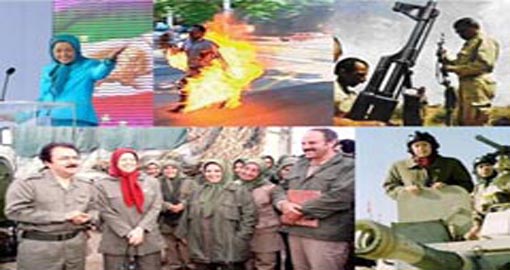The commitment to violence is what distinguishes a terrorist group from other extremist groups. For years, the Mujahedin-e Khalq Organization (the MKO) was committed to acts of terror and violence as its main strategy to  fight the shah of Iran and then the Islamic Republic government. However, the group hasn’t committed violent act since 2002. It claims that it has officially denounced terrorism even though it has never made any official statement openly.
fight the shah of Iran and then the Islamic Republic government. However, the group hasn’t committed violent act since 2002. It claims that it has officially denounced terrorism even though it has never made any official statement openly.
Given that the MKO has denounced terrorism, why is there too much concern over the relocation of the MKO in Europe, Albania? According to the reports, not many member states of the European Union were willing to receive the MKO in their territory and ultimately Albania accepted to receive them in exchange for financial aid from the United States.
There is too much concern about the presence of the MKO in Europe because the MKO’s background indicates true facts about its nature as a terrorist destructive cult.
Researchers have developed a number of different theories and conceptual models that seek to explain the process by which an individual becomes radicalized. Most of them consider certain stages from beginning to end of the process. Based on researches the ending stage of the process is always violent action.
This demonstrates that the MKO has already passed through all the stages although it is not apparently committed to terrorism now. Thus, the potential capacity of a radicalized extremist terrorist group threatens the European citizens, particularly the Albanians who hardly ever have enough information on true nature of the MKO.
Social scientists, law enforcement organizations, and intelligence agencies all agree that terrorists are the products of the dynamic process of radicalization. Radicalization makes the individuals get engaged in a system of beliefs – radical or ideological – and impose their beliefs on the rest of society. This is exactly what the MKO has passed through during its half a century–long history.
There are common elements in the experiences of most people who have become indoctrinated in the destructive terrorist cults, regardless of their beliefs or motivations. These elements make significant changes in the life style of a person including his social relations. The person’s behavior will become more intense and extreme over time compared with the normal life.
Members of the MKO are kept under a very suppressive system that controls all aspects of their life. Celibacy is mandatory in the MKO; love and emotions are forbidden except for their leaders. Members have to reveal all their thoughts during the day in certain sessions –held daily and weekly in order to maintain mind control over members. Sleep deprivation, solitary confinement, mental and physical torture are usual practices in the Cult of Rajavi. Members have no access to the outside world or the news of the outside world. Now that they are in Tirana, the rank and file are allowed to go outside their apartment complex only under the supervision of a superior member.
Under the severe manipulation system of the Cult of Rajavi, most members are likely to have gone all the way to become a violent extremist. For this reason, you may not be surprised to see a dozen of the group members commit self-immolation following the arrest of their leader Maryam Rajavi by the French Police in 2003.
The world community particularly the United Nations and the Government of Albania have the crucial duty to interrupt the process of victimization of the MKO members. Besides, the international bodies should prevent members of the MKO to get to the point of threatening or using violence – although some of them have already reached the point.
The active involvement of families, friends and human rights bodies in the process of de-radicalization is very important. Unfortunately, paid advocacy for the MKO is clear evidence of an absence of will to secure the European citizens and to release the victims taken as hostages in the MKO.
By Mazda Parsi

